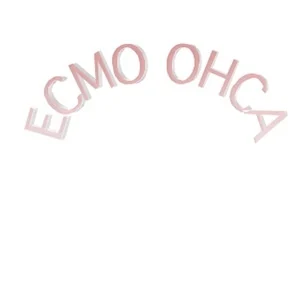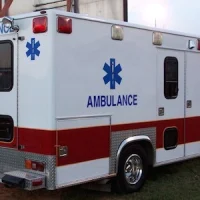While the role of extracorporeal membrane oxygenation (ECMO) for in-hospital cardiac arrest has good evidence, the benefit of using it for out-of-hospital cardiac arrest (OHCA) is less clear.
Favrizio Cirillo, Department for Anaesthesiology and Intensive Care Medicine, University Hospital Cologne, Germany, and colleagues have recently published a narrative review of the literature on extracorporeal life support strategies and management for OHCA. The literature review covers 2010 until 31 May 2015, and is published in Trends in Anaesthesia & Critical Care.
The review explores and discusses:
They also review barriers for favourable outcome and the further use of ECLS for refractory OHCA adult patients for donation after circulatory death.
See Also: Chain of Survival after Out-of-Hospital Cardiac Arrest
Treatment of OHCA remains challenging they conclude, and patients who experience OHCA have a low probability of survival with good neurological function.
They write: “For the future, evidence-based criteria to include patients into an ECLS protocol and to estimate the success of ECLS after refractory cardiac arrest are highly desirable to avoid futile and expensive invasive manoeuvres.”
Favrizio Cirillo, Department for Anaesthesiology and Intensive Care Medicine, University Hospital Cologne, Germany, and colleagues have recently published a narrative review of the literature on extracorporeal life support strategies and management for OHCA. The literature review covers 2010 until 31 May 2015, and is published in Trends in Anaesthesia & Critical Care.
The review explores and discusses:
- strategy - inclusion and exclusion criteria, location, best timing and teams and technique
- quality of resuscitation - in terms of mortality and/or neurological sequelae
- complications
They also review barriers for favourable outcome and the further use of ECLS for refractory OHCA adult patients for donation after circulatory death.
See Also: Chain of Survival after Out-of-Hospital Cardiac Arrest
Treatment of OHCA remains challenging they conclude, and patients who experience OHCA have a low probability of survival with good neurological function.
They write: “For the future, evidence-based criteria to include patients into an ECLS protocol and to estimate the success of ECLS after refractory cardiac arrest are highly desirable to avoid futile and expensive invasive manoeuvres.”
References:
Cirillo F, DeRobertis E, Hinkelbein J (2016) Extracorporeal life support for refractory out-of-hospital cardiac arrest in adults. Trends
in Anaesthaesia & Critical Care, in press.
doi:10.1016/j.tacc.2016.06.001
Latest Articles
ECMO, extracorporeal membrane oxygenation, out-of-hospital cardiac arrest, OHCA, life support
While the role of extracorporeal membrane oxygenation (ECMO) for in-hospital cardiac arrest has good evidence, the benefit of using it for out-of-hospital cardiac arrest (OHCA) is less clear. Favrizio Cirillo, Department for Anaesthesiology and Intensiv










